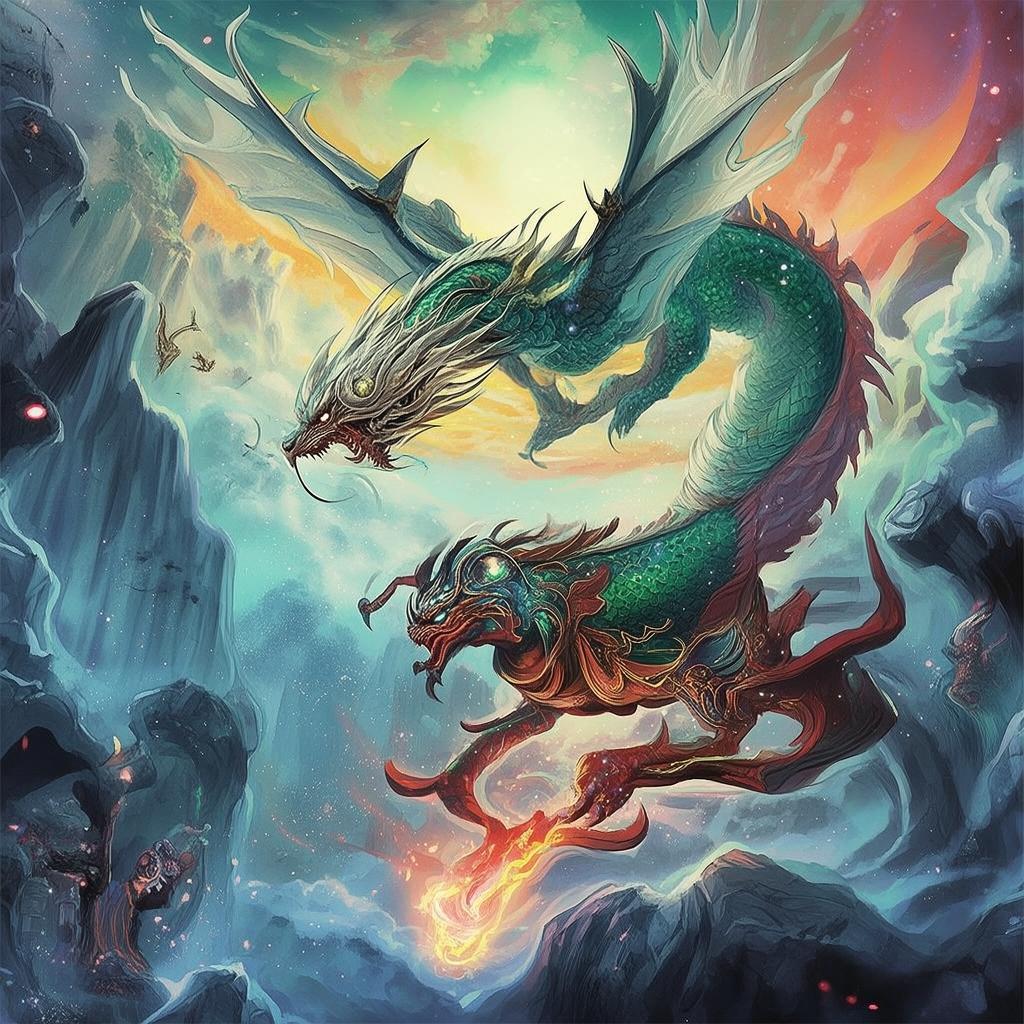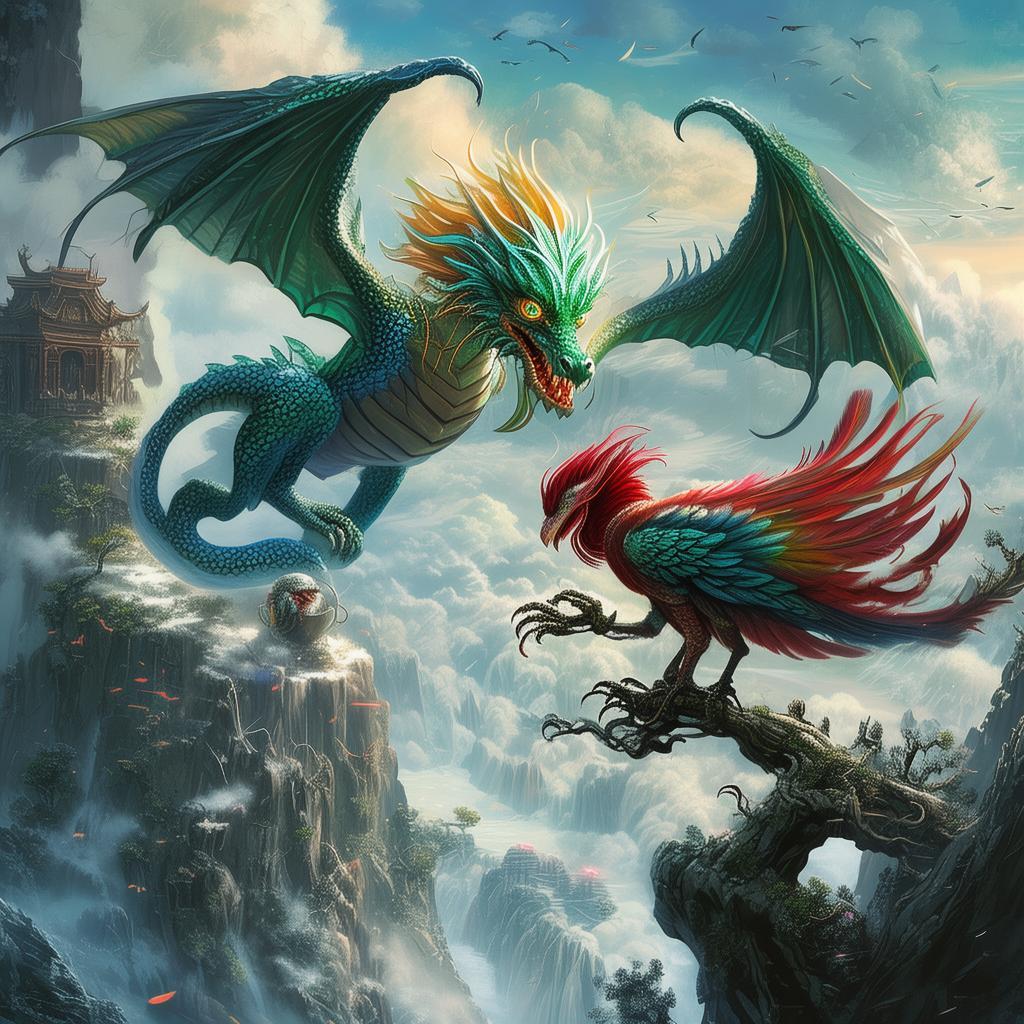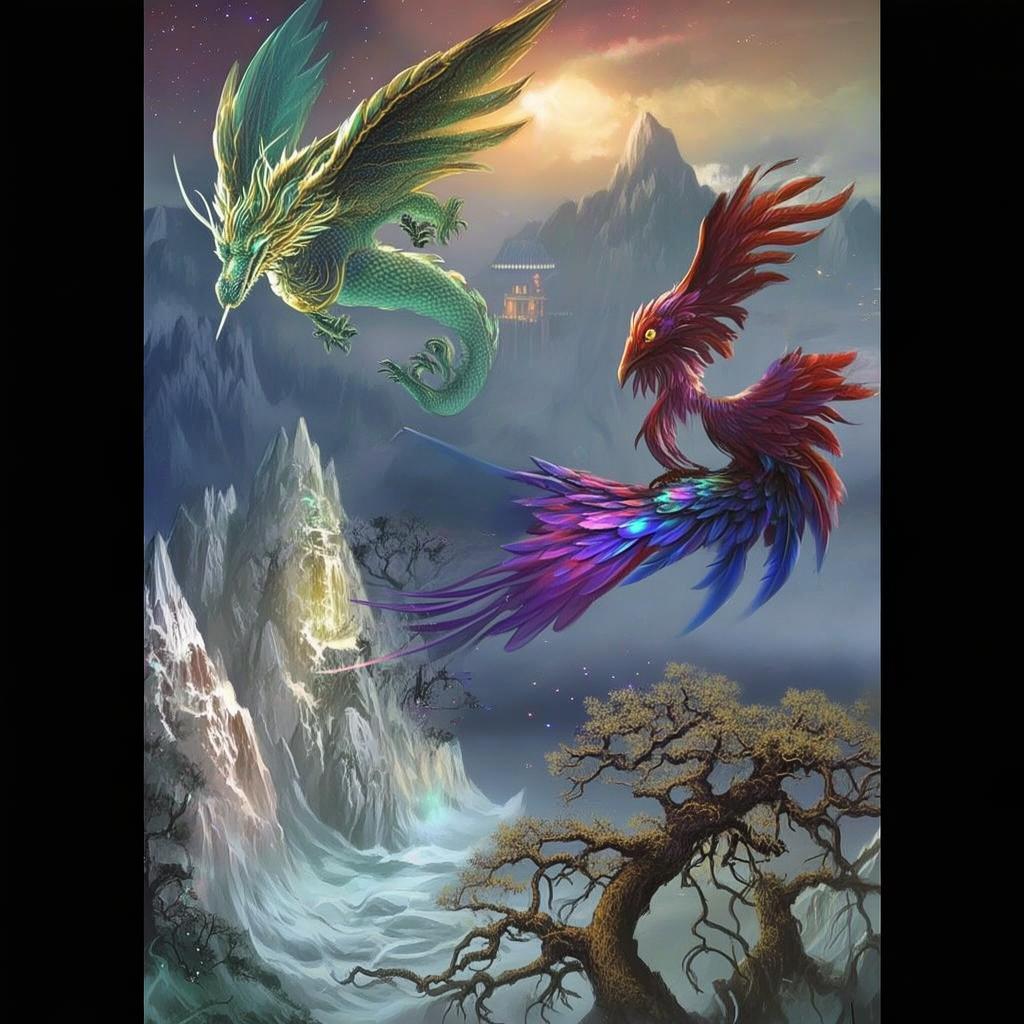The Samurai's Dream: The Quest for the Lost Mountains of Japan
In the heart of ancient Japan, where the mountains whispered secrets and the rivers sang tales of old, there lived a samurai named Katsuro. His name was whispered among the warrior class, but his spirit was known to none. For Katsuro was not like the others; he sought not the glories of battle or the adoration of the court. His quest was a silent one, for he was bound by a dream that only the fabled mountains of Japan could fulfill.
The legend spoke of mountains veiled in mist, where the air shimmered with the essence of the divine. They were said to hold the secrets of life and death, of power and peace. Many had searched for these mountains, but none had returned. Katsuro's quest was to find the lost mountains and bring back the knowledge that lay hidden within them.

His journey began in the bustling streets of Kyoto, where the aroma of fresh sushi mingled with the scent of incense from the thousand-year-old temples. Katsuro was a man of few words, his face a mask of stoic resolve. He carried with him a map that had been passed down through generations of his family—a map that pointed to the mountains, but only in the most cryptic of ways.
As he ventured deeper into the land, the map's cryptic clues led him through the untamed wilderness. The forest was dense, the path treacherous, and the weather unpredictable. Katsuro's companions, a young monk named Tenji and a cunning hunter named Kikyo, were as much a part of his journey as the mountains themselves.
The trio encountered many trials. A riddle posed by a hermit deep in the mountains tested their wits; a treacherous river demanded their bravery; and a pack of ravenous wolves sought to end their quest before it had even begun. Through each challenge, Katsuro's resolve only grew stronger.
One night, as they camped near a secluded waterfall, Katsuro shared a story with Tenji and Kikyo. It was a tale of a samurai who, in a moment of despair, found clarity in the face of death. The samurai's words echoed through the night, a beacon of hope for Katsuro.
Days turned into weeks, and the path grew ever more elusive. The map, which had seemed so clear at the beginning, now seemed to lead to dead ends. Katsuro's doubt began to creep in, but he knew that giving up was not an option. The mountains were calling him, and he must answer.
Finally, as the sun dipped below the horizon, casting a golden glow over the mountains, Katsuro reached the last clue. It was a series of ancient symbols etched into the rock face. Tenji and Kikyo, though bewildered, followed his lead, and together they deciphered the symbols.
The final clue pointed to a hidden cave, nestled in a crevice of the mountains. As they entered, the cave seemed to come alive, the walls shimmering with an otherworldly light. The air was thick with the scent of ancient secrets, and the sound of running water filled the air.
In the heart of the cave, they found a pedestal upon which rested a small, ornate box. Katsuro reached out and opened it, revealing a scroll. The scroll was filled with ancient knowledge, the wisdom of the mountains themselves. As he read, he felt a profound connection to the earth, to the universe.
The knowledge was immense, and it changed Katsuro forever. He knew that his journey was not over, for the mountains had only just begun to reveal their secrets. But he also knew that he was no longer the same man who had set out on this quest. He was now a vessel of ancient wisdom, a guardian of the lost mountains.
Katsuro, Tenji, and Kikyo emerged from the cave, the scroll tucked safely within Katsuro's belt. They journeyed back to Kyoto, the knowledge they had gained forever etched into their souls. And though the mountains remained lost, Katsuro knew that they were not truly gone. They were there, in the hearts of those who sought them, waiting to be discovered once more.
The samurai's dream had come true, not in the way he had imagined, but in a way that transcended his wildest dreams. He had found the lost mountains, not as a physical place, but as a metaphor for the uncharted territories of the human spirit. And with this newfound understanding, Katsuro's quest had become a quest for the soul itself.
✨ Original Statement ✨
All articles published on this website (including but not limited to text, images, videos, and other content) are original or authorized for reposting and are protected by relevant laws. Without the explicit written permission of this website, no individual or organization may copy, modify, repost, or use the content for commercial purposes.
If you need to quote or cooperate, please contact this site for authorization. We reserve the right to pursue legal responsibility for any unauthorized use.
Hereby declared.









